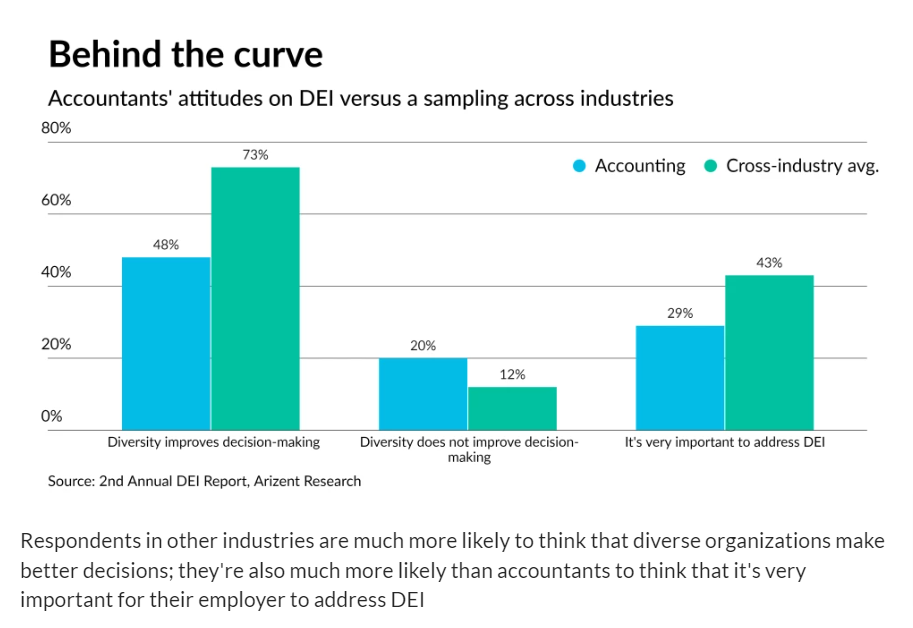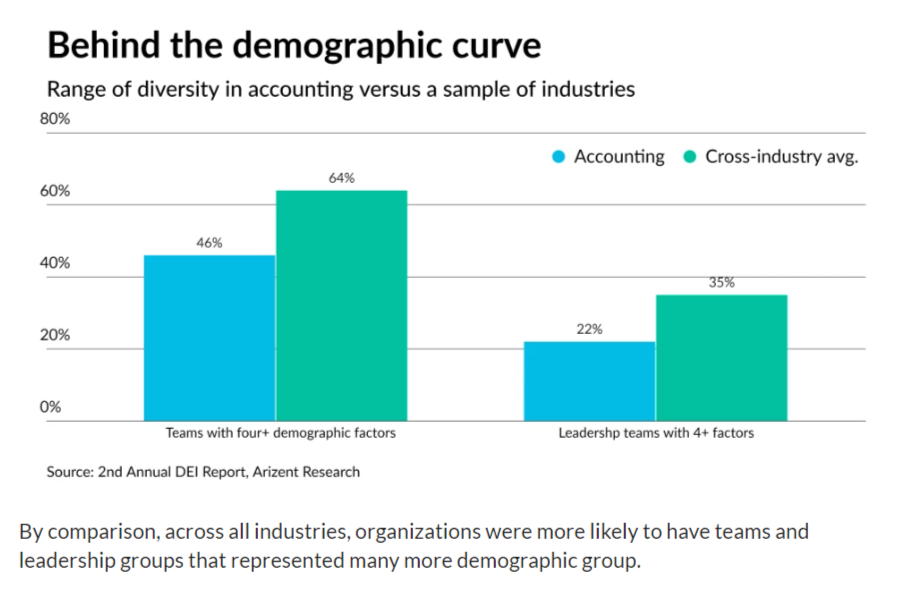Staying Ahead of the Inclusion Curve
January 16, 2023
by Monette Anderson, CAE

During December 2022, I was fortunate to be able to attend two special events in the Diversity, Equity, and Inclusion (DEI) space. One was the WSCPA DEI Workshop facilitated by Kevin Henry. The other was the American Society of Association Executives Conscious Inclusion Summit. Both events involved workshop-style formats where attendees were encouraged to collaborate and share ideas.
I’ll highlight an overview of a couple of exercises that resonated with me, and encourage you to find these activities/resources and reflect on them yourself:
THE TRUSTED 10 EXERCISE
Make a list of the 10 individuals that you most trust. Now examine your circle of 10 most trusted individuals and their top identity characteristics. Looking at your list of names, think about each individual’s gender, religion, ethnic group, sexual orientation, marriage status, political background, and nationality. Do those on your list mirror your own identity traits and values? Often this is the case. When you think about your work life, are you gravitating to people most like you? Who are you approaching on your team when there are high visibility or stretch assignments to assign?
WORKPLACE PRIVILEGE
Deanna Singh, author of Actions Speak Louder: A Step-By-Step Guide to Becoming an Inclusive Workplace, led a session examining privilege in the workplace. While we started with statements like "I don’t have to work extraordinarily hard to ensure my ideas are heard in meetings, elevated during discussions, and advance to the levels where decisions are made" or "I can feel included in office culture, surrounded by people I feel comfortable with and who feel comfortable with me," our group immediately began discussing other privileges we less often consider. Privileges such as access to flexibility regarding child-care arrangements, not having a long commute to place of employment, or having the confidence and status to initiate innovation in the workplace.
Exercises like these can be a reminder why it’s important to keep leaning into DEI work; there is inherent value in connecting with others, building bridges, and creating more inclusive workplaces for all. This encompasses race, gender, disability, religion, age, military status, sexual orientation, sexual identity, and family-care status.
Firms and businesses continue to deal with the reeling effects of the pandemic, the great resignation, the great retirement, accounting enrollment declines. Furthermore, college enrollment is predicted to fall by more than 15 percent after 2025, a trend being called “Enrollment Cliff.” These sociological factors are all working together to create a dire shortage of incoming CPA and accounting professionals to manage work that is likely to only get worse. These are all forcing the profession to seek out new recruitment sources and address the corresponding access and barriers impacting our incoming pipeline.
Arizent recently conducted a survey across a number of different industries, the ROI on DEI, which revealed that the accounting profession remains behind other industries in their perception of the value of DEI. A few stats reported by Accounting Today’s Daniel Hood in "Accountants and DEI: By the numbers," an article published in October 2022, are concerning.


Additionally, accounting respondents were 25 percent less likely than their peers to feel that diversity improves decision making, and 18 percent less likely to feel it was important to address DEI.
What are the unintended consequences of the above attitudes and beliefs persisting in our profession?
- Recruitment of new candidates: According to Zety.com 2023 HR Statistics: Job Search, Hiring, Recruitment and Interviewing, 67 percent of both active and passive job seekers say that when they're evaluating companies and job offers, it is important that the company has a diverse workforce.
- Retention of current staff: People are more than five times more likely to remain at inclusive companies according to Great Places to Work April 2021 article, "Why is Diversity & Inclusion in the Workforce Important."
- Future investments: Inclusive organizations are 70 percent more likely to capture new markets as reported by Builtin's October 2022 article, "54 Diversity in the Workplace Statistics to Know."
- Lack of innovation: Dimins.com reports in their February 2022 article, "Why Diversity Matters in Decision Making" that inclusive teams make better decisions 87 percent of the time.
The accounting profession needs to increase diversity and inclusion efforts to remain competitive to their workers, customers, and reputation. It’s incumbent on all organizations to implement actionable steps, appropriate to their organization, to move us all forward. Organizations that don’t are sure to be left behind as investors, customers, and their employees demand it.
The WSCPA has been working to create a DEI Council of our members who will undertake some initiatives to continue to move the WSCPA, our members and the organizations they represent forward. We can’t wait to introduce them to you and share the important work they are undertaking in the coming months.
If you’re interested in learning more about DEI and available resources, join the WSCPA Diversity and Inclusion Resource Group in Connect, the WSCPA’s private community at connect.wscpa.org.

Monette Anderson, CAE, is the Executive Director of the Washington CPA Foundation and WSCPA Director of Member Services. You can contact Monette at manderson@wscpa.org.
This article appears in the winter 2023 issue of the Washington CPA magazine. Read more here.
